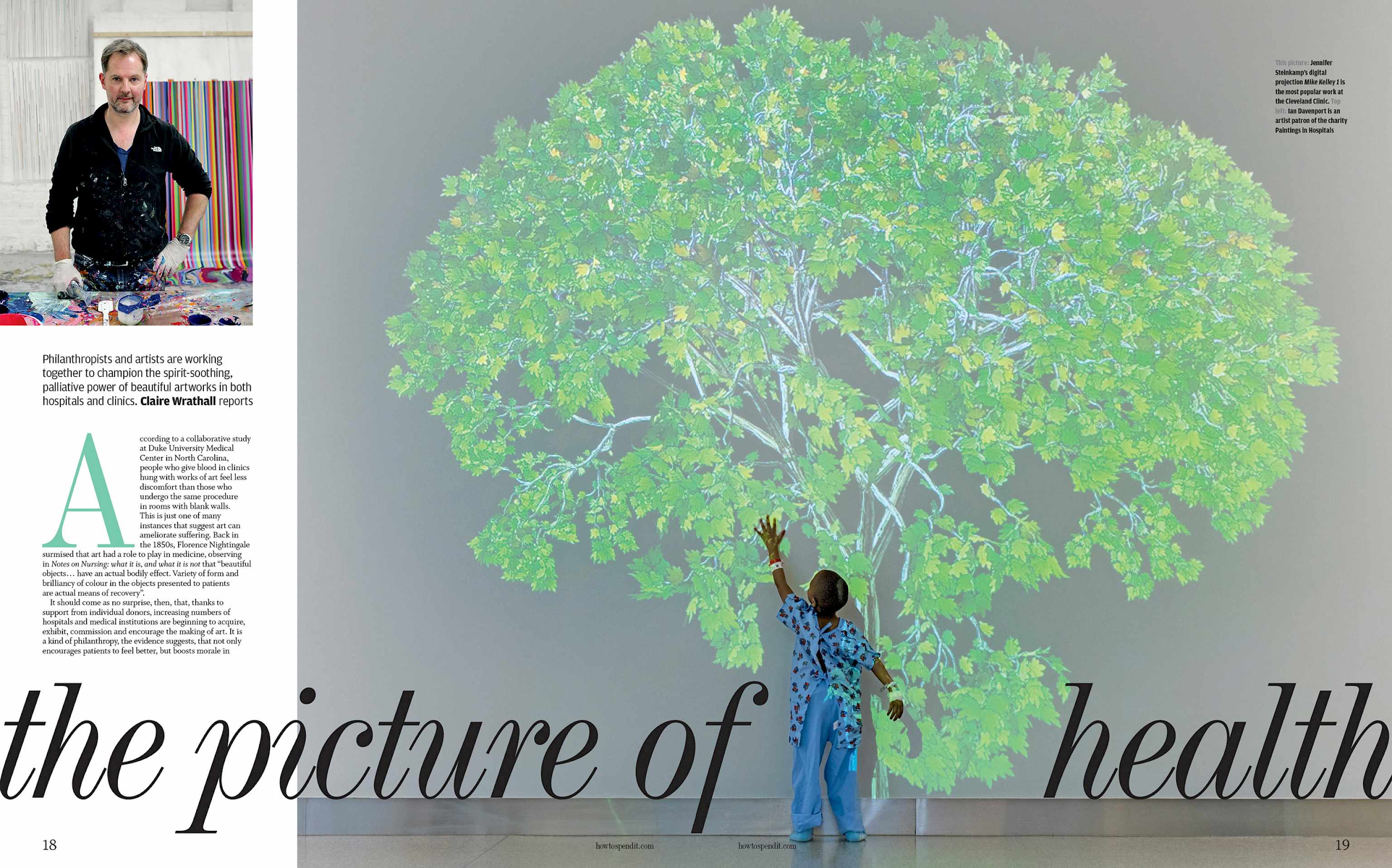
Exploring the Palliative Power of Art
Claire Wrathall, Financial Times, How To Spend It, October 13, 2017
Claire Wrathall explores how philanthropists are championing the therapeutic effects of art in medical settings:
"According to a collaborative study at Duke University Medical Center in North Carolina, people who give blood in clinics hung with works of art feel less discomfort than those who undergo the same procedure in rooms with blank walls. This is just one of many instances that suggest art can ameliorate suffering. Back in the 1850s, Florence Nightingale surmised that art had a role to play in medicine, observing in Notes on Nursing: what it is, and what it is not that "beautiful objects… have an actual bodily effect. Variety of form and brilliancy of colour in the objects presented to patients are actual means of recovery".
It should come as no surprise, then, that, thanks to support from individual donors, increasing numbers of hospitals and medical institutions are beginning to acquire, exhibit, commission and encourage the making of art. It is a kind of philanthropy, the evidence suggests, that not only encourages patients to feel better, but boosts morale in medical and auxiliary staff, creates employment for artists and engenders in its supporters the sense that they are doing some good, not just in a palliative sense but in pushing the boundaries of research. As Scott Mead - founding partner of the global corporate finance advisory firm Richmond Park Partners, a former partner and managing director of Goldman Sachs and a major supporter of the innovative arts programme at London's Great Ormond Street Hospital - puts it, "Philanthropy often has to be further upstream from mainstream research. Some of it is speculative, let's face it, but investing in situations before they're 100 per cent proven is what philanthropists do. And based on the research I've read, the advice I'm getting and the feelings I have in my heart for this, art can make a difference, even though we don't know for sure what that difference will be. You have to try new things, and support for them is more likely to come from philanthropists than the NHS budget, generous though that is. It's the job of philanthropists in society to get out on the thin end of the branch."..."
To continue reading please download the PDF.
PDF: Claire Wrathall, Financial Times, How To Spend It, October 13, 2017